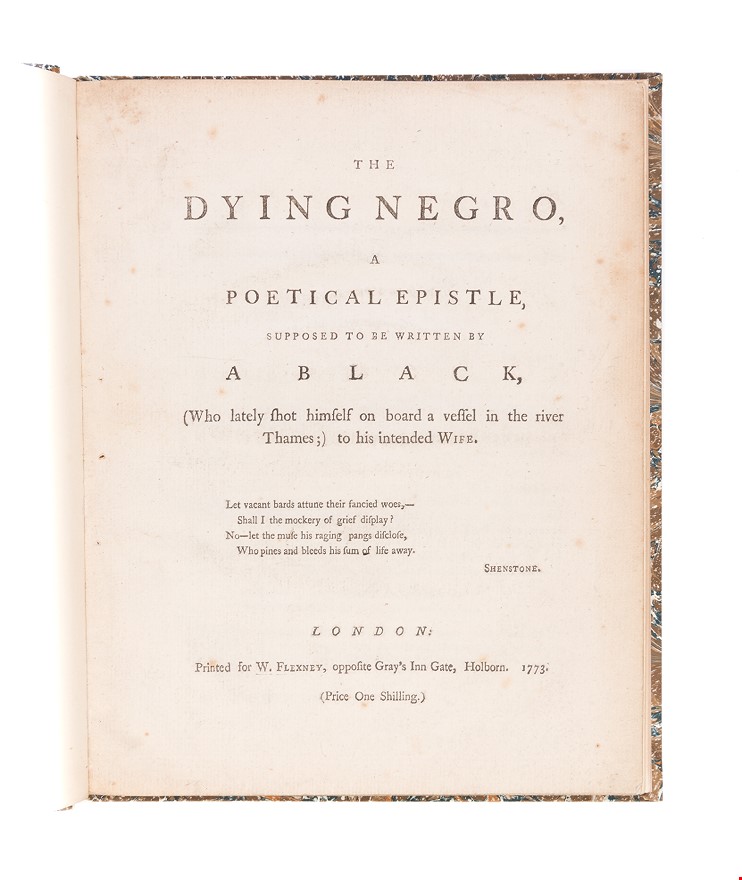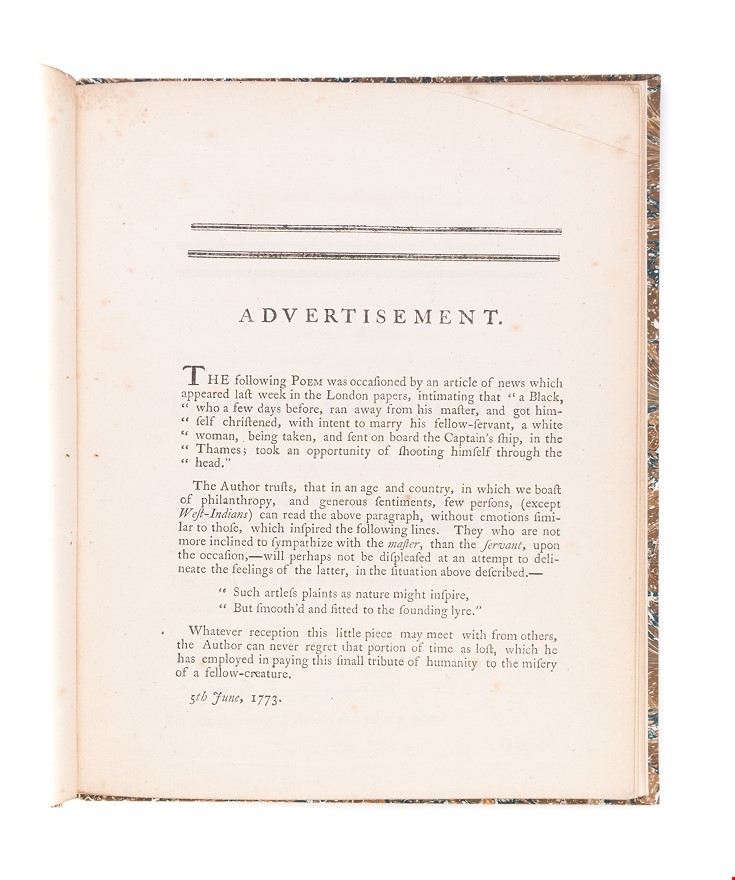The Dying Negro, a poetical epistle, supposed to be written by a black, (who lately shot himself on board a vessel in the river Thames;) to his intended wife.
DAY Thomas &; BICKNELL John. (1773.)
£7500.00 [First Edition]
Please contact us in advance if you would like to view this book at our Curzon Street shop.
THE FIRST SIGNIFICANT PIECE OF ABOLITIONIST VERSE PROPAGANDA
First edition. 4to. Modern marbled boards, morocco label to spine, gilt, slightly rubbed, some minor spotting. [viii], 19, [1]pp. London, Printed for W. Flexney, opposite Gray's Inn Gate, Holborn,
A very good copy of this early and important abolitionist poem.
Marcus Wood notes that The Dying Negro "was popular from its appearance and remained a firm favourite with Anglo-American abolition readerships. It is the first significant piece of verse propaganda directed explicitly against the English slave systems ... The poem written in crude form by Bicknell shortly before his early death, and then expanded by his friend Day ... was created before there were any established models for abolition literatures attempting to give the slave victim a voice."
The advertisement summarises the content of the poem, noting that it was prompted by "a Black, who a few days before, ran away from his master, and got himself christened, with the intent to marry his fellow-servant, a white woman, being taken, and sent on board the Captain's ship in the Thames; took opportunity of shooting himself in the head." The report of the event appeared in London newspapers at the end of May 1773.
Wood continues, "What is particularly unusual about this poem, and what separates it from subsequent abolitionist poetry, is the manner in which it argues for the right of the slave to love and marry a white woman in England." It's worth noting that while Day was supportive of North America's claims to independence, he was clear-eyed about the inherent hypocrisy of any slave-owning nation fighting for liberty.
Educated at Charterhouse and Corpus Christi College, Oxford, Thomas Day (1748-1789) was both a poet and political campaigner. He was also a dedicated believer in Rousseau's ideas. So much so, that he adopted two girls in 1769 and sent them to France where they were educated in the manner of Emile. He felt that one of them, who he named Sabrina Sidney, showed promise and brought her to London for further tests, which she duly failed. Intriguingly, while she was dismissed with a small allowance, she would marry John Bicknell, the co-author of this poem. Day was also a member of the Lunar Society and so associated with other prominent reformists as well as the abolitionist, Josiah Wedgwood.
Sabin, 18987; Thomas, Hugh, The Slave Trade. London, 2006, p.489; Wood, Marcus, ed., The Poetry of Slavery. (Oxford, 2003) p.36.
Stock Code: 233841






